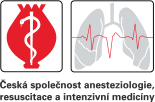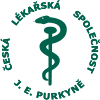Anest. intenziv. Med. 2018;29(3):123-127
Cognitive function improvement after bilateral carotid endarterectomy. Are low rSO2 values an indication for oxygen therapy?Case Report
- Klinika anesteziologie, resuscitace a intenzivní medicíny, 2. lékařská fakulta Univerzity Karlovy a Fakultní nemocnice v Motole
Many physiological functions including cognition are decreasing with ageing. Cognitive function reduction disturbing functioning in activities of daily living is called dementia. In seniors, performing a cognitive assessment using short screening instruments is strongly recommended during preoperative evaluation. In the case report I describe a case of an 80-year old lady with bilateral carotid stenoses resulting in insufficient brain oxygen delivery with pathologically low rSO2 values on near infrared spectroscopy (NIRS) and decreased cognitive performance. She underwent carotid endarterectomy on both sides. With oxygen inhalation during the surgery, these very low rSO2 values normalized completely so that introducing shunts was unnecessary during carotid clamping. Would such brain hypoxia be an indication for longer oxygen therapy? Brain hypoxia before the first surgery could be explained by decreased cerebral blood flow caused by carotid stenoses, because rSO2 values as well as cognitive functioning using Clock-In-the-Box test improved significantly after the endarterectomy. Short cognitive assessment during preoperative evaluation is feasible and with NIRS monitoring in carotid surgery it can facilitate perioperative management and make risk assessment easier.
Keywords: carotid endarterectomy; cognitive dysfunction; near infrared spectroscopy
Received: March 12, 2018; Accepted: May 2, 2018; Published: June 1, 2018 Show citation
References
- Elischer A, Juríčková L, Bartoš A. Promeškaná včasná léčba Alzheimerovy nemoci u geriatrické pacientky. Praktický lékař. 2017;97:41-44.
- Chow WB, Rosenthal RA, Merkow RP, et al. American College of Surgeons National Surgical Quality Improvement Program; American Geriatrics Society: Optimal preoperative assessment of the geriatric surgical patient: a best practices guideline from the American College of Surgeons National Surgical Quality Improvement Program and the American Geriatrics Society. J Am Coll Surg. 2012;215:453-456.
 Go to original source...
Go to original source...  Go to PubMed...
Go to PubMed... - Chester JG, Grande LJ, Milberg WP, et al. Cognitive screening in community-dwelling elders: performance on the clock-in-the-box. Am J Med. 2011;124:662-669.
 Go to original source...
Go to original source...  Go to PubMed...
Go to PubMed... - Culley DJ, Flaherty D, Reddy S, et al. Preoperative Cognitive Stratification of Older Elective Surgical Patients: A Cross-Sectional Study. Anesth Analg. 2016;123:186-92.
 Go to original source...
Go to original source...  Go to PubMed...
Go to PubMed... - Lawton MP, Brody EM. Assessment of older people: Self-maintaining and instrumental activities of daily living. The Gerontologist. 1969;9:179-186.
 Go to original source...
Go to original source...  Go to PubMed...
Go to PubMed... - Bartoš A, Janoušek M, Hohinová M. Tři časy Testu kreslení hodin hodnocené BaJa skórováním u časné Alzheimerovy nemoci. Cesk Slov Neurol N. 2016;79/112:406-415.
- Heng M, Eagen CE, Javedan H, et al. Abnormal Mini-Cog Is Associated with Higher Risk of Complications and Delirium in Geriatric Patients with Fracture. J Bone Joint Surg Am. 2016;98:742-750.
 Go to original source...
Go to original source...  Go to PubMed...
Go to PubMed... - Folstein MF, Folstein SE, McHugh PR. Mini-Mental State. A practical method for grading the cognitive state of patients for the clinician. Journal of Psychiatric Research. 1995;12:189-198.
 Go to original source...
Go to original source...  Go to PubMed...
Go to PubMed... - Borson S, Scanlan JM, Chen P. The Mini-Cog as a screen for dementia: validation in a population-based sample. J Am Geriatr Soc. 2003;51:1451-1454.
 Go to original source...
Go to original source...  Go to PubMed...
Go to PubMed... - Grande LJ, Rudolph JL, Milberg WP, et al. Detecting cognitive impairment in individuals at risk for cardiovascular disease: the "Clock-in-the-Box" screening test. Int J Geriatr Psychiatry. 2011;26:969-975.
 Go to original source...
Go to original source...  Go to PubMed...
Go to PubMed... - Jackson CE, Grande LJ, Doherty K, et al. The Clock-in-the-Box, a brief cognitive screen, is associated with failure to return home in an elderly hospitalized sample. Clin Interv Aging. 2016;11:1715-1721.
 Go to original source...
Go to original source...  Go to PubMed...
Go to PubMed... - Kurth CD, Uher B. Cerebral hemoglobin and optical pathlength influence near-infrared spectroscopy measurement of cerebral oxygen saturation. Anesth Analg. 1997;84:1297-1305.
 Go to original source...
Go to original source...  Go to PubMed...
Go to PubMed... - Akioka N, Takaiwa A, Kashiwazaki D, et al. Clinical significance of hemodynamic cerebral ischemia on cognitive function in carotid artery stenosis: a prospective study before and after revascularization. Q J Nucl Med Mol Imaging. 2017;61:323-330.
 Go to original source...
Go to original source...  Go to PubMed...
Go to PubMed... - Lukasiewicz A, Mindykowski R, Serafin Z. The influence of carotid endarterectomy on cerebral blood flow in significant carotid stenosis-perfusion computed tomography study. Int Angiol. 2014;33:309-315.
 Go to PubMed...
Go to PubMed...





